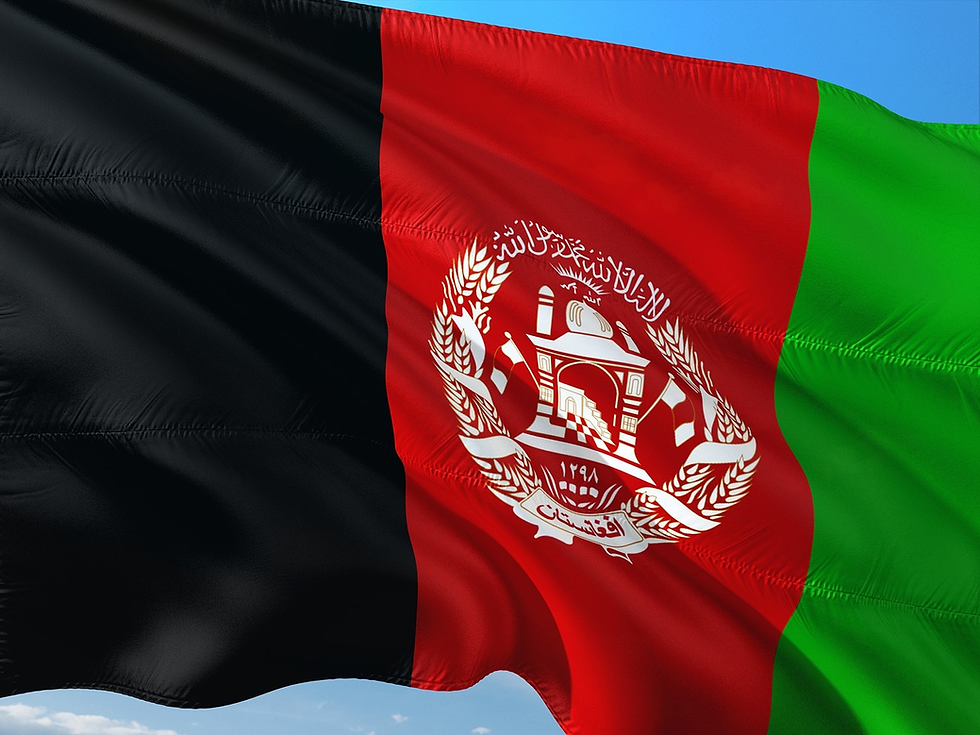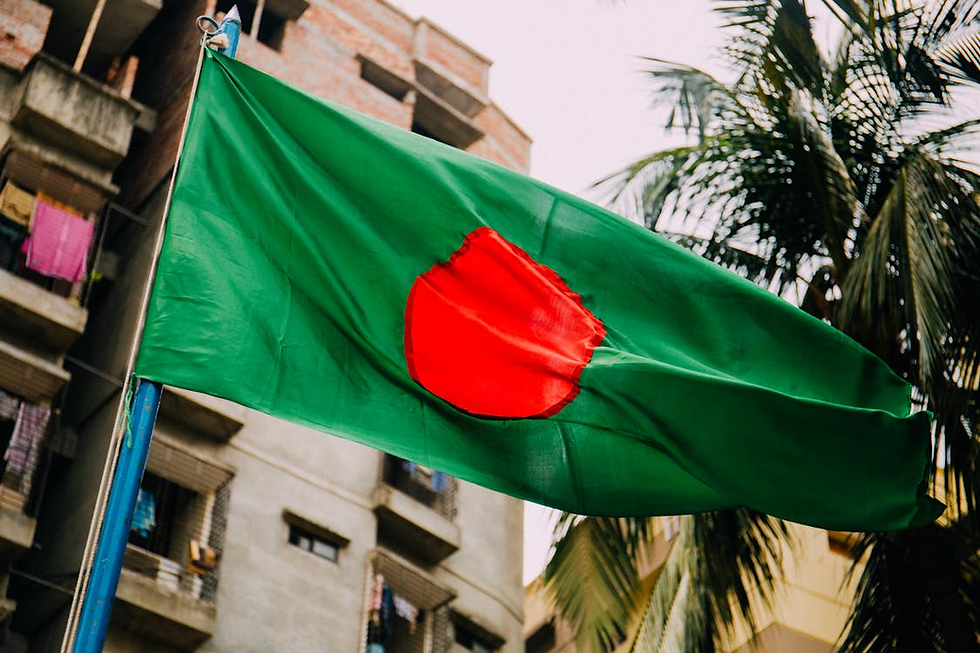Afghanistan School Bombing Overwhelmingly Targets Hazara Girls
- Hannah McGaw

- May 29, 2021
- 5 min read
Updated: Dec 23, 2024
On May 8th, around 4:30 p.m. local time, a vehicle loaded with explosive devices parked near the entrance of the Sayed ul Shuhada High School in Dasht-e-Barchi, Kabul, Afghanistan. When the students of the school left at the end of the school day, the vehicle exploded. This first blast was followed by two roadside IEDs, which had been planted in order to catch students who tried to flee.
The three bombs claimed the lives of students from many grades, as well as teachers and several first responders. According to CNN, on the 10th of May, at least 85 people had been confirmed dead. More than 240 female students were injured. Because the bombs caused such heavy casualties, many of Kabul’s hospitals are now overwhelmed. As the days have passed, many of the injured students eventually shifted lists, moving from the "ranks of the injured to the cold accounting of the dead".
CBC reported how, when the explosions happened, people were forced to take the dead and injured to nearby hospitals and centres, where they could be attended to. The police arrived on the scene two hours after the first bomb detonated, and ambulances continued to arrive afterwards.

As of the 29th of May, nobody has claimed responsibility for the attack; the Taliban has denied being behind the explosions.
Mohammad Amiri owns a grocery store near the school and was working when the bombs exploded: "I was frozen in the first two minutes," he said: "I heard girls screaming. Many of them were burning, on fire. Others were completely burned… I saw their brains out on the street. Legs and hands were spread around. One leg was thrown into a nearby yard." This was the third time that Amiri has witnessed an explosion in his neighbourhood.
Najibullah Sultani had just arrived at his house when the first bomb went off. He rushed out in search of his daughter, Zahra Sultani. When the second and third bombs detonated, he was on his way to the school; as soon as he arrived, he saw his daughter’s body in the streets. According to The Diplomat, he grabbed his daughter’s body and carried her to a nearby hospital. He hoped his daughter was still alive. Then, the doctor told him his daughter was already dead. A piece of the bomb had hit the back of her head: she had died immediately upon impact. Zahra was only twelve. Just three months ago, Sultani had relocated his family from their home of Bamyan’s Waras district to settle in Kabul, hoping to provide a better education for his daughter and four sons.
Families of the school bombing victims said in a statement that the bombing on the 8th of May should be recognised as a "genocide of Hazaras". The Afghanistan Independent Human Rights Commission and the affected families have called on the United Nations to launch a thorough investigation into the presently unclaimed bombing. To identify their children, mothers and fathers have had to search every hospital bed, each morgue within the settlement. In many cases, their children have been disfigured, making identification even harder. Ghulam, a day laborer, who prepared to mount at the Qamar-e-Bani Hashim Mosque, emotionally proclaimed, “Today we are going to bury them with thousands of dreams,” he said. “That is one of the poorest schools in the neighborhood. Those girls don’t even have 15 cents to buy bread.”
Habibullah Amiri, a Hazara activist who is part of a team that helps families of the victims and survivors of the attacks, said: "New-born babies, newly-wed brides, pregnant women, high school students, worshipers, girl students and passengers of Hazaras have deliberately been targeted by militants over the last 20 years. This trend has been going on for a long time."
For the last twenty years, the Taliban have kidnapped and beheaded civilian members of the Hazara ethnic group on highways. With the emergence of the Islamic State in 2014, attacks against the ethnic group have soared.
Since 2016, there have been over fifty attacks on Hazaras in Afghanistan with most of them along the Hazara-populated suburbs of Kabul. Islamist militants have blown up two protests, one wedding hall, two educational centres, multiple mosques, multiple political gatherings, one wrestling club, one maternity hospital, and now one school: all in the Dasht-e-Barchi neighbourhood alone.
As a result, many public places in the area have hired armed guards, and added multiple layers of security, turning once-peaceful public sites into military zones.
Violence is widespread across Afghanistan, and the suffering of Afghans is collective, but Hazaras are consistently victims of persecution and murder. The school massacre on the 8th of May is just the latest mass brutality against a community that bears the title of one of the "world’s most persecuted peoples". Hazaras currently make up roughly a quarter of the 38 million people in Afghanistan, but they were once the largest Afghan ethnic group. Sanctioned state persecution against the Hazaras began in the late nineteenth century - with killings, exiles, and a growing slave trade.
An educated Hazara community is viewed as a political threat in reactionary circles, and as an active challenge to the prevailing ethnic status quo. However, for Hazaras, an education has been the primary method of survival and route of escaping the extreme poverty caused by oppression. Now, students and teachers alike are terrified of returning to schools.
“I hate my school uniform,” said Gul Nasrin Niazi, 16. She was just stepping out of the school when the bombs exploded. Two weeks later, Niazi now suffers from chronic headaches and fears being left alone in a room. Her parents are too poor to afford care for her mental health. “My headache gets worse when I pass by my school. I am afraid of my school", she says.
The principal of Sayed ul Shuhada High School, Aqila Tawakoli was in her office when the bombs detonated. The blasts broke the windows. Tawakoli was helplessly trying to find a way to save her students, “That night, I kept crying,” said Tawakoli, who aims to re-open her school on the 28th of May. “My responsibility for the surviving students weighs heavier than my emotional breakdown. Otherwise, I won’t be able to face my students.”
The United States has condemned the attack as "barbarous" and has called for an "immediate end to violence and the senseless targeting of innocent civilians."
Many of the victims were buried in a mass fuaneral on Sunday 9th May, on a hilltop known as the Education Martyrs Cemetery, which is dedicated to people who have lost their lives in the pursuit of an education. Many of the tombstones have girls’ names on them: a testimony to the long struggle for more inclusive schooling in the country.

_edited.png)



This is great and super informative. I only have one concern, and this is not to take away the effort that was put into this article, but my only concern is that this post does not mention how The Hazara community is being targeted not only for their ethnicity, but because they are predominantly Shia Muslims, a minority sect within Islam. They are being targeted for being Hazara and for being Shia!